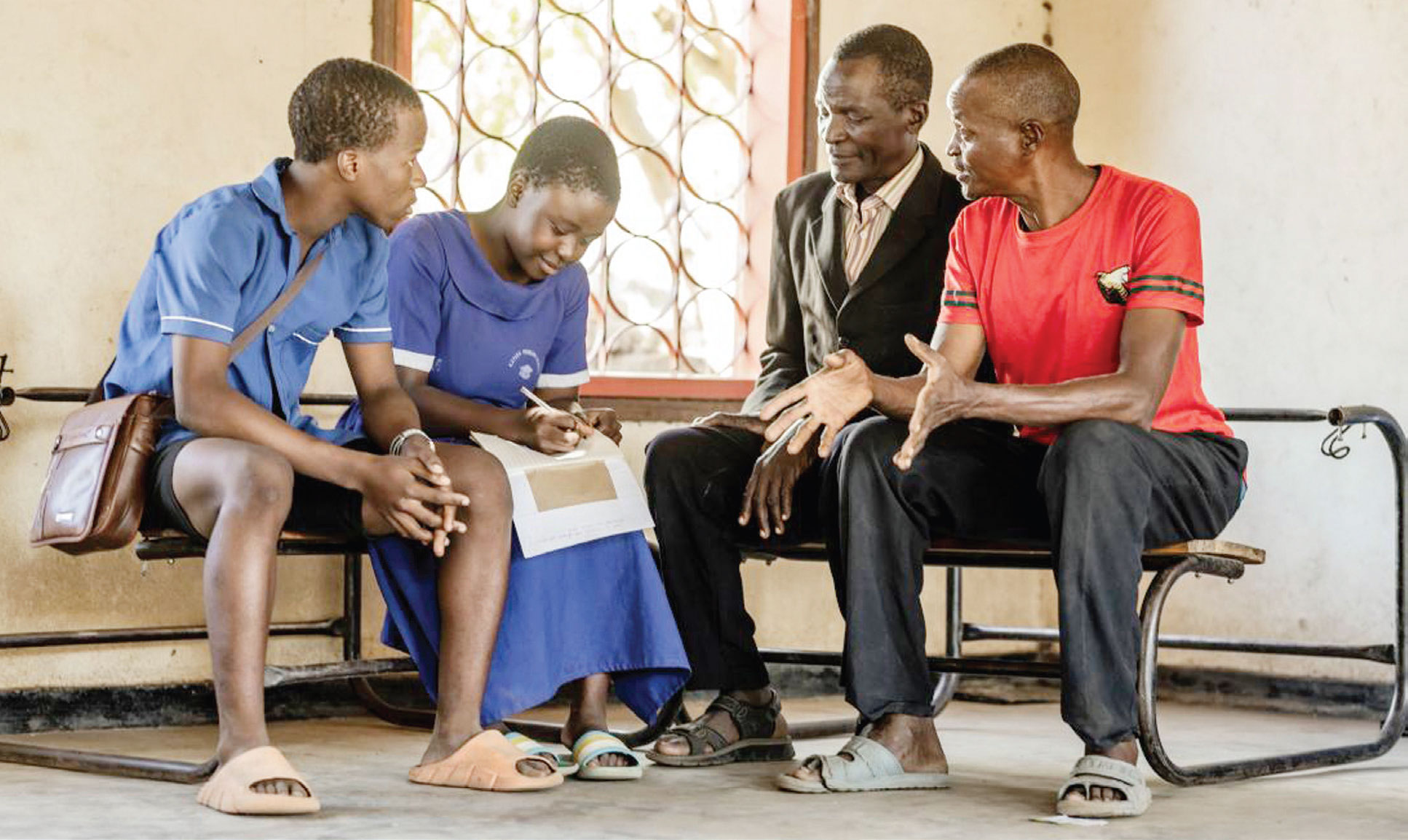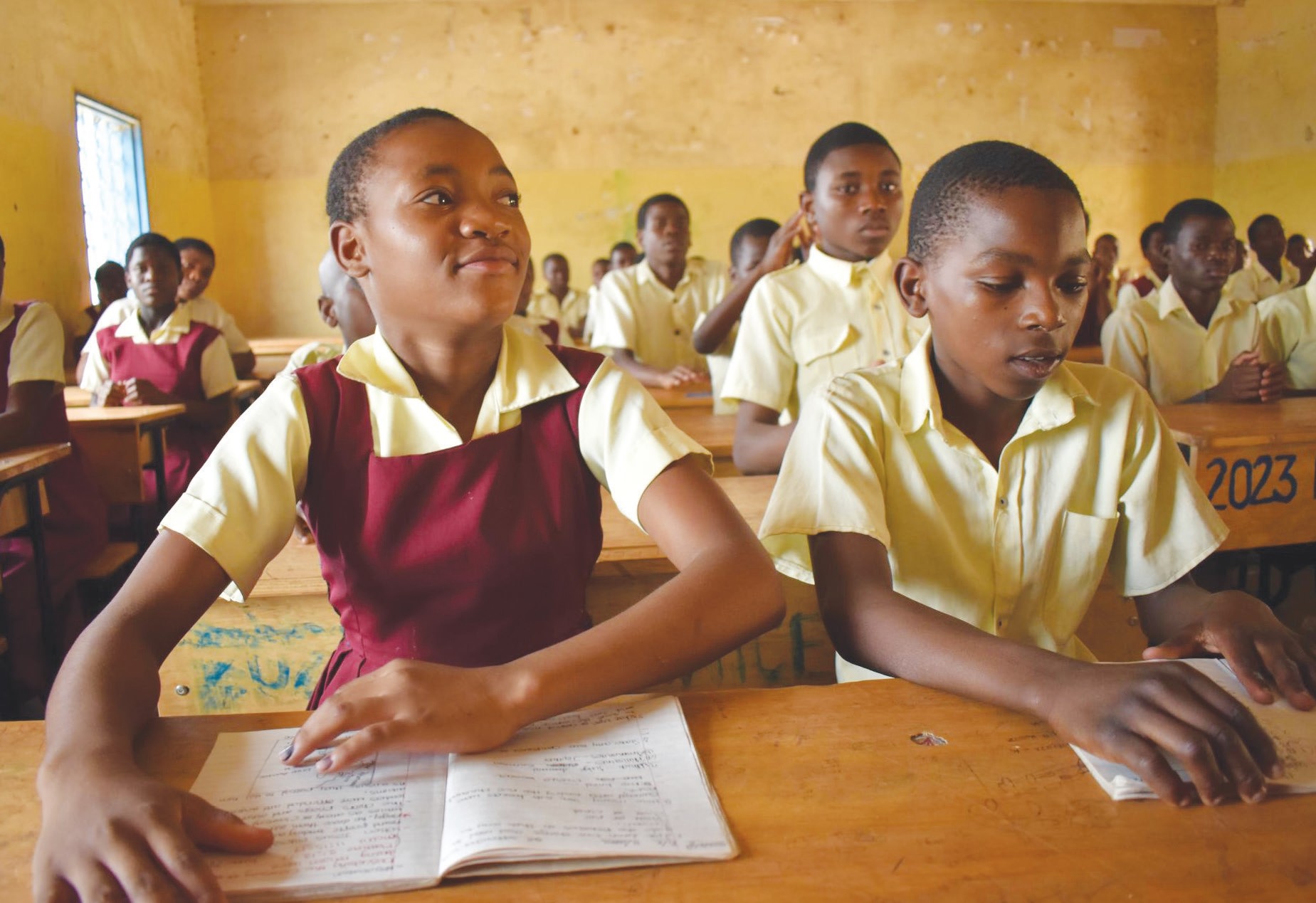Slowing girl’s rush to marry
A 16-year-old girl renamed Suzgo to conceal her identity sat last year’s primary school leaving examinations while seven months pregnant. This is the plight faced by nearly one in three Malawian girls aged between 13 to 19, shows the 2015 Malawi Demographic and Health Survey.
The girl based in Mzimba was among thousands of teen girls who fell pregnant and married when government closed schools for seven month to reduce Covid-19 transmissions.

“I thought it was the end of the world and schools would never reopen again,” she recounts. “I didn’t want to die without a baby.”
The Ministry of Gender, Community Development and Social Welfare reports that 13 000 girls fell pregnant and 40 000 got married before their 18th birthday during the sudden school break from March 23 to September last year.
When the Primary School Leaving Certificate of Education (PSLCE) examination started last September, expectant Suzgo was stuck in an illicit marriage marred by violence.
Theresa Chirwa, chairperson of a mother group in villages surrounding Kaphuta Primary School in Mzimba, says the lengthy school closure frustrated efforts to keep girls in school until their dreams come true.
“There was nothing much we could do to keep girls in school as we didn’t know when schools would reopen. Girls were idle for long and some got carried away into risky sexual activities which led to early pregnancies and marriages,” she explains.
Following the reopening of schools, Chirwa and her group started going door-to-door, tracking children to return to school. They work in collaboration with child protection workers, leaving no mile unreached in the push to retain girls in school and terminate marriages involving girls aged below 18. The concerned mothers also persuade pregnant girls to return to school after giving birth.
The mother group is one of the community-led structures spearheading Securing Children’s Rights through Education and Protection (Screp) programme in Mzimba, Mwanza, Neno and Lilongwe Urban.
The initiative, funded by Norwegian Agency for Development Cooperation (Norad), seeks to enhance children’s welfare by curbing sexual and physical abuse. It is being implemented by the Education Department of the CCAP Livingstonia Synod in Mzimba South in partnership with Save the Children Malawi.
The change agents work closely with community policing committees, mother groups and parent-teacher associations to increase school completion rate among girls in Suzgo’s rural communities.
The community actors have withdrawn five underage girls from marriages and three of them have re-enrolled at Kaphuta Primary School and sat PSLCE examination while pregnant.
Beauty Chisi, secretary of the mother group, says this was exceptional because it coincided with the national examinations, marking transition to secondary school.
“The trio received physical, moral and psychological support in preparation for the test and all the three were selected to different community day secondary schools in the area,” she says.
Suzgo commends the mother group for facilitating her return to school and access to health care services when she was pregnant.
The teen mother, who dreams of becoming a journalist, is determined to excel in school to beat poverty which partly pushed her into marriage.
“I want to finish school and get a good job so that I can adequately support myself, my parents and my baby,” she says.
The mother group monitors learners’ school attendance and provides needy girls with reusable sanitary pads so they do not miss classes during menstruation.
Chisi says: “We are addressing challenges that hinder girls from attaining education.
“For instance, we constructed a change room at the school so that girls do not go home or be absent during menstruation period.”
Headteacher Charles Phiri credits the programme with keeping learners focused on their education.
He says: “Communities now push children, especially girls, to remain in schools by addressing barriers to education.
“As a result, we are providing education to more children, including girls saved from marriages.”
Phiri says they have an increased the number of children with improved academic performance.
Kens Mwambira, from the synod’s Education Department, is pleased with the strides in promoting children’s rights.
“Education is key to success. We are pleased with the communities’ vigilance to support children to finish school because this empowerment is pivotal to all efforts to create a society free from poverty and gender-based violence,” he says.
Screp programme manager Tumbikani Kaonga says they strive to create an environment where children are liberated to live to their full potential.
“By supporting children to be in school, they are being protected and empowered to have a bright future,” he says. n





